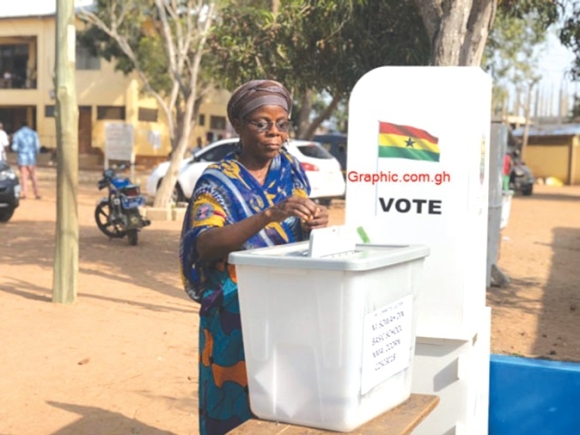
Navigating the debate: Partisan vs. non-partisan elections for MMDCEs in Ghana
The debate surrounding the election of metropolitan, municipal and district chief executives (MMDCEs) in Ghana has gained significant traction among various stakeholders, igniting discussions about whether these elections should be conducted on partisan lines or remain non-partisan.
This essential question touches on the future of local governance and the democratic process in the country. Proponents and opponents of partisan elections present compelling arguments that reflect the complexities of governance and the desire for effective leadership at the local level.
Partisan
Advocates for partisan elections, including the Institute for Democratic Governance (IDEG), argue that such a system would enhance transparency and accountability in local governance. Dr Emmanuel Akwetey, the Executive Director of IDEG, has emphasised that competitive elections are likely to bring in competent individuals and ensure that local leaders are accountable not only to the President but also to their political parties and constituents. This alignment could strengthen local policies and foster a sense of responsibility among MMDCEs, who would be answerable to a wider electorate.
Furthermore, the New Patriotic Party (NPP) posits that partisan elections would increase political participation and engagement at the local level. Political parties are adept at mobilising resources and supporters, which could result in stronger leadership that is responsive to community needs. The NPP believes that electing MMDCEs on partisan lines could also serve as a vital training ground for future politicians, preventing scenarios where MMDCEs might undermine parliamentary representatives to secure their positions.
Additionally, proponents of partisan elections argue that political parties are already involved in local-level elections, therefore, formalising it by conducting local-level elections on party lines is the way forward. Furthermore, they query that since at the national level, elections are done on partisan lines what stops the same thing at the local government level?
Non-partisan
Conversely, the National Democratic Congress (NDC) strongly opposes the introduction of partisan elections. Its members argue that this approach could exacerbate electoral bitterness and tension, drawing parallels to the often fraught atmosphere surrounding national elections. They raise concerns over the high costs associated with conducting partisan elections, which they fear could strain the national budget. The NDC advocates a non-partisan system, one that prioritises community needs over party agendas, thus ensuring local governance remains focused on the issues that directly affect citizens. Echoing this sentiment, the Ghana Centre for Democratic Development (CDD-Ghana) conducted a survey revealing that 71 per cent of Ghanaians favour non-partisan elections, reflecting a strong public preference for governance that transcends party lines.
Professor Kwamena Ahwoi, a leader member of the NDC and a former Minister for Local Government and Rural Development, raises additional points against the imposition of a partisan structure in local governance. He argues that it could disrupt the existing non-partisan framework, which is essential for addressing community needs without the interference of party politics. Prof. Ahwoi warns that partisan elections might lead to prioritising party interests at the expense of local accountability and democratic principles. The potential for corruption is another significant concern; political patronage and favouritism could overshadow genuine community service, eroding trust in local governance.
Advantages/ Disadvantages
There are, however, notable benefits associated with electing MMDCEs on partisan lines. Transparency and accountability could see marked improvements, as competitive elections naturally foster a push for capable candidates. Additionally, this system could encourage heightened citizen participation, as individuals become more engaged with local governance when political parties are involved.
Despite these advantages, several drawbacks accompany the notion of partisan elections. Increased polarisation could arise, potentially damaging community cohesion and exacerbating tensions between opposing political factions. The spectre of corruption looms large, fuelled by the influence of financiers with their own agendas, which can divert focus from community-centric governance. Moreover, the bitterness and high costs typically associated with national elections could unfortunately find their way into local contests, undermining the spirit of democracy at the grass-roots level.
Consensus
As Ghana stands at this critical crossroads, it is evident that there is a collective desire for the election of MMDCEs. The point of contention lies in whether this should occur along partisan or non-partisan lines. With entrenched stances held by both the NPP and NDC, the pathway forward necessitates extensive consultation among stakeholders. The lessons of the past, particularly the stalled reforms of 2019, should urge a cautious approach to avoid failure in the current climate. For the sake of national cohesion and effective governance, consensus is essential. The time has come for Ghana to embrace the election of MMDCEs, and it is the responsibility of civil society organisations and the government to facilitate dialogue among all parties involved. Ensuring a collaborative effort to determine the best way forward for local governance elections in the country is critical.
The writer is a political scientist
